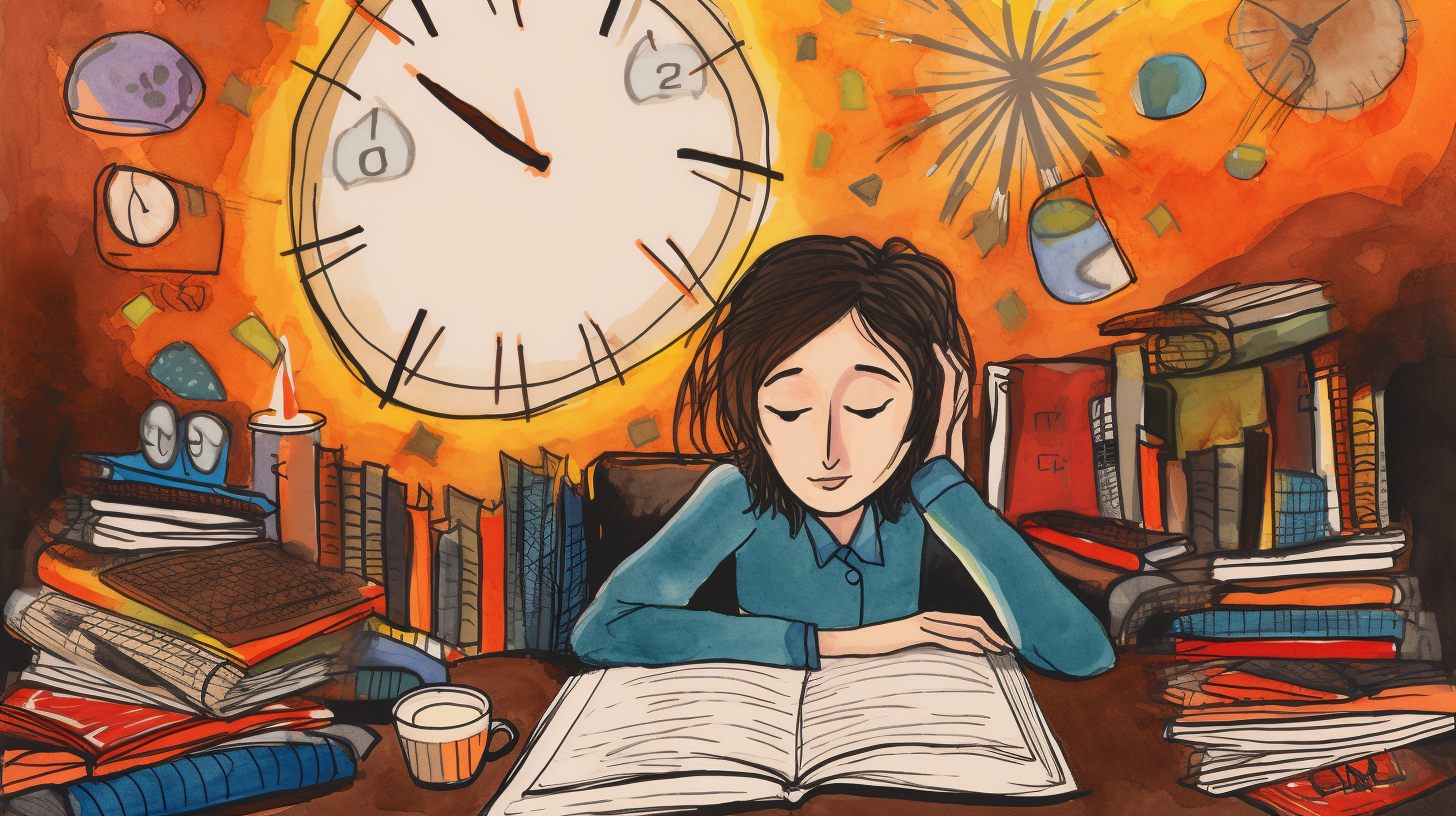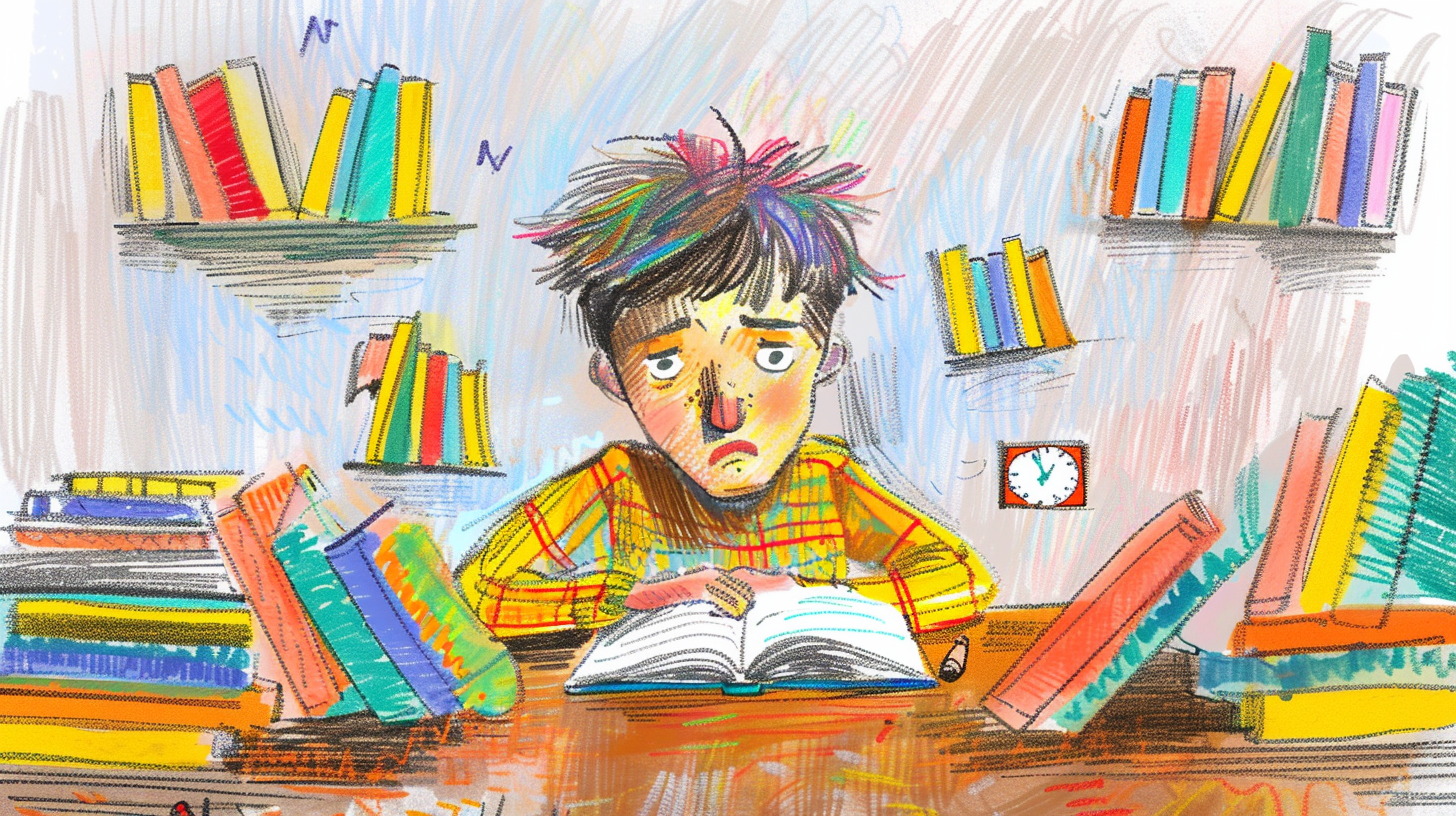Ever find yourself lost in a book, oblivious to the world around you? While it’s a sign of a great story, sometimes it can be more—like a reading addiction. It’s a term you might not hear often, but it’s real, and it’s important to understand the difference between a healthy love for literature and a potential problem.
In this piece, we’ll jump into the concept of reading addiction, exploring its causes and how it can impact your life. You’ll also get practical tips for balancing your reading habits to ensure they stay enjoyable without taking over. So, let’s turn the page and begin our journey into the world of reading addiction.
What is Reading Addiction?
Definition of Reading Addiction
Reading addiction occurs when you find yourself addicted to reading, consistently prioritizing books over your essential duties and social engagements. Unlike physical dependencies, reading addiction doesn’t harm the body but can disrupt the balance in life. Can you be addicted to reading? Absolutely, if your pursuit of literature leads to compulsive behavior, this signals a shift from passion to addiction to books. Importantly, audiobooks provide a flexible alternative that may help offset this by allowing multitasking and supporting a healthier relationship with your literary love.
Symptoms of Reading Addiction
Recognizing the symptoms of a reading addiction disorder is crucial to understanding its impact on your life. You might be addicted to books if you:
- Regularly neglect responsibilities for reading
- Experience restlessness or irritability when you can’t read
- Use books as an escape from real-life issues excessively
- Avoid social activities to read alone
- Keep buying books, even though having an unread stack
- Struggle in setting reading limits
Admitting that reading can be an addiction brings forth an opportunity to explore solutions like audiobooks. They can reduce book addiction by enabling you to enjoy stories without disengaging from daily life. With audiobooks, you’re less likely to indulge excessively, as you can seamlessly integrate listening into your schedule, freeing you from the risks associated with a reading addiction.
Causes of Reading Addiction
Emotional Reasons
You may find yourself addicted to reading because emotional triggers in day-to-day life often dictate behavior. Whether you’re managing stress, loneliness, or depression, the allure of books presents a comforting reprieve. When you immerse yourself in a narrative, the emotional investment in characters and stories provides a temporary respite from your challenges. This strong connection to literary worlds can be habit-forming, initiating an addiction to reading books.
Escapism
Escapism is a powerful driver behind reading addiction. Compelling plotlines offer you an escape from reality—a chance to live vicariously through an ensemble of characters. For many, the detachment from real-world pressures that books provide is irresistible. This urge to flee—not just to de-stress but to experience a sense of euphoria—fuels an addiction to reading that can dominate your life and priorities.
Curiosity and Knowledge Seeking
Your innate curiosity and thirst for knowledge can also lead to book addiction. The relentless pursuit of learning new things or exploring uncharted territories through stories is an enthralling experience. But, when the quest for endless insights tips the balance away from other essential activities, it may signal a reading addiction disorder. The need to consume literature becomes a pressing desire rather than a leisurely pastime or a balanced form of education through audiobooks or traditional reading.
Effects of Reading Addiction
Positive Effects
When you’re addicted to reading, you might find Unexpected Benefits to your cognitive and emotional health. This habit-forming activity can lead to an increase in vocabulary and improvements in both your memory and writing skills. It’s a wholesome way to spend time, and you’ll often find that you’re more empathetic.
Reading fiction has been linked to a better Theory of Mind, which means you’re better at understanding others’ feelings and intentions. Also, being addicted to books isn’t as isolating as one might think; book clubs and forums are ripe for social interactions that stem from shared literary interests. While you’re building connections with characters in stories, you’re also likely to build real-life connections with fellow book lovers.
Negative Effects
But, addiction to reading can spiral into something less benign. Reading addiction disorder can lead to an imbalance in your daily life. If you’re spending excessive time engrossed in novels and narratives, crucial aspects like work, relationships, and personal care might be neglected. It’s important to recognize whether you’ve crossed the line from a passionate reader to someone addicted to books in a way that’s harming your well-being.
Addiction to reading manifests through symptoms such as loss of sleep due to reading, neglecting responsibilities to read, and feeling anxious or irritable when not reading. Life’s equilibrium depends on moderation, which also applies to the activities you enjoy. Can reading be an addiction that disrupts balance? Absolutely, and identifying these signs early is key to maintaining both a love for books and a healthy lifestyle.
Remember, addiction to reading is a real concern, and recognizing the difference between a healthy habit and compulsive behavior is essential. Ensure that your love for stories does not become a barrier to living a fulfilling and balanced life.
Tips for Managing Reading Addiction
Setting Limits
If you’re struggling with a reading addiction, it’s crucial to set concrete boundaries. Limit the time you spend with books each day. For example, allocate a maximum of one hour for indulging in your favorite novels. Treat this limit like any other important commitment—non-negotiable and scheduled. Being disciplined with these boundaries helps reduce the chances of falling back into excessive reading.
Diversify Your Reading
Sure, you might be addicted to reading books, but have you tried swapping some of that time for audiobooks? Not only do audiobooks let you enjoy literature while multitasking, but they also add variety to your consumption habits. Listening to an audiobook during your commute or while doing chores can satisfy your craving for stories without the need to sit down with physical copies.
Engage in Other Activities
To combat addiction to reading, deliberately engage in a range of hobbies. If books have been your sole focus, explore interests that require different skill sets. You could learn a new instrument, start a fitness routine, or join a cooking class. Diversifying your activities not only breaks the cycle of compulsive reading but also enriches your life with new passions.
Remember, it’s about balance. Whether you’re dealing with a book addiction or an addiction to reading in any form, taking control starts with acknowledging the issue and actively seeking ways to manage it effectively.
Conclusion
Embracing your love for books while maintaining a balanced life is essential. Remember that moderation is key. You’ve got the tools to manage your reading habits effectively, ensuring they enrich rather than disrupt your life. Now, it’s all about applying these strategies to harness the benefits of reading without letting it overshadow other vital areas. So go ahead and jump into your next book, but don’t forget to come up for air and experience the world beyond the pages.
Frequently Asked Questions
What is a reading addiction?
Reading addiction, or bibliomania, is an obsessive-compulsive disorder involving the collecting or hoarding of books to the point where social relations or health are damaged.
Are there benefits to reading addiction?
Moderate reading can lead to benefits such as increased knowledge, vocabulary, and cognitive ability, but when it becomes excessive and compulsive, it may lead to neglect of responsibilities.
Can reading too much be harmful?
Excessive reading can become harmful if it interferes with daily life, work, social relationships, or self-care. It’s important to maintain a balance and ensure that reading doesn’t become an escape from reality.
How can I balance my love for reading with other responsibilities?
Setting limits on reading time, exploring a variety of genres, including non-fiction and audiobooks, and engaging in social or physical activities can help balance your love for reading with other responsibilities.
Is it possible to overcome reading addiction?
Yes, it is possible to overcome reading addiction by recognizing the problem, setting clear limits, finding alternative hobbies, and seeking support from friends, family, or professionals if needed.




